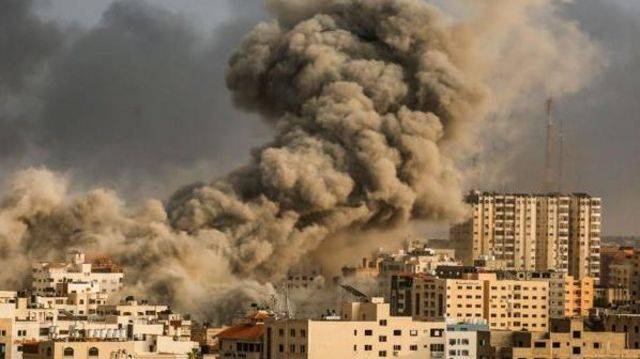Despite expectations that the Israeli war on the Gaza Strip will continue for several months, discussions about the post-war phase have not ceased. This topic has generated much debate, even amidst the ambiguity and confusion surrounding the thoughts of leaders in Tel Aviv. However, Israeli Defense Minister Yoav Galant hinted, last Thursday evening, at some elements of his "post-war plan."
According to the Israeli minister, neither "Hamas" nor an "Israeli civil administration" will govern war-torn Gaza, but rather a Palestinian civil authority loyal to Israel. According to the plan presented by Galant to the wartime ministerial council—which is still under discussion and has not yet been adopted—the new phase of the "day after" will begin after a ceasefire and the defeat of Hamas. Additionally, "there will be no Israeli civilian presence in the sector," meaning there will be no settlements or displacement of Palestinians, which is a clear rejection of Israeli National Security Minister Itamar Ben Gvir's call for Jewish settlers to return to Gaza and "encourage" Palestinian residents to emigrate from the area.
Thus, the people of Gaza will remain in their territory, with its 2.4 million residents managed by an unspecified Palestinian entity whose identity or political affiliation has not been defined, while some media reports have suggested it might be governed by certain clans. Furthermore, anything entering Gaza will be subject to thorough inspection.
It is also expected that there will be monitoring of the border between Gaza and Egypt through advanced means and technology, likely funded by the United States. The reconstruction of the strip—which has suffered partial or complete destruction of about two-thirds of its buildings—will be the responsibility of some Arab countries, as seen in past stages of the Israeli-Palestinian conflict.
However, the Israeli army seemingly will enjoy "freedom of movement" for a long time to mitigate any potential "threat," according to an AFP report. It is unclear what this freedom of movement entails and whether it implies complete military control over the besieged sector for an extended period.
### Palestinian Rejection
In response to this proposed plan, which remains under discussion within the Israeli wartime government, Palestinian Prime Minister Mohammad Shtayyeh questioned, "How can they talk about the day after and about the Palestinian Authority governing Gaza while Israel wants to politically separate the sector from the West Bank?" He added in an interview published by the Financial Times: "I do not believe Israel will leave Gaza soon; rather, I think it will establish its own civil administration that will operate under the authority of its army, thus making the issue of the 'day after' unclear at this time."
For his part, Abbas Dodah, spokesperson for the Fatah movement, deemed Israeli Defense Minister's proposals and visions for Gaza's future as unacceptable and "without value." In statements to the Arab World News Agency (AWP) on Thursday evening, he said, "Galant's proposal is not acceptable, and Palestine will only be governed by Palestinians; we will determine and choose who governs us, as this is our land."
Numerous scenarios have been proposed for post-war governance of Gaza in international discussions, including the return of the Palestinian Authority to rule the sector, possibly with modifications, or handing over governance to a technocratic government, or even Egyptian supervision with an international peacekeeping force to maintain security on the ground. However, none have yet garnered significant international and regional consensus.
Notably, a recent survey conducted by the Palestinian Center for Political and Survey Research, an independent institute based in Ramallah, revealed that nearly two-thirds of Palestinians—64%—believe Hamas will maintain control over the sector after the war ends. In contrast, 11% of those surveyed expect a national unity government affiliated with the Palestinian Authority to take control of the sector, but without President Mahmoud Abbas, while only 7% support Abbas's leadership.




